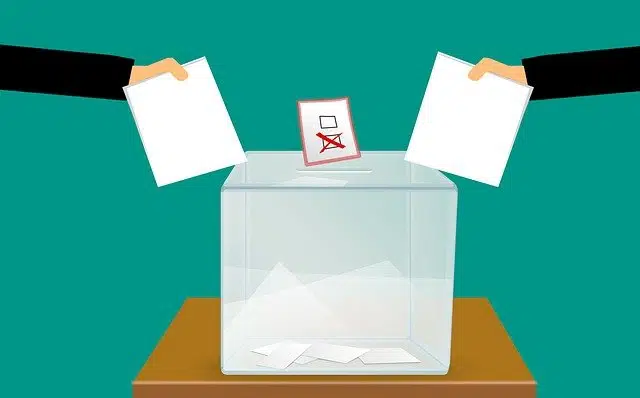
A referendum is a mechanism of direct democracy.
A referendum is a legal mechanism that allows the population to ratify or reject certain resolutions of a government . It is a tool typical of direct democracy , in which people make a decision without the need for the intermediation of representatives.
Typically, however, the referendum is a mechanism that operates within a regime of representative democracy . The issue put up for consideration will be resolved in favor of the option that garners the majority of votes.
It should be noted that not all referendums produce results that are mandatory or that become a resolution that is effectively applied. Some referendums are advisory and then the Legislative Branch must make the final decision. When the referendum is decisive, it is classified as binding .
Examples of referendum
An example of a referendum took place in 2004 in Venezuela . On that occasion, the government of Hugo Chávez organized a vote to ask the population if they wanted the president to remain in office or if, on the contrary, his mandate should be revoked. Nearly ten million Venezuelans cast their vote and 58% chose for Chávez to remain in power .
In 2011 , the first referendum that put a nation 's independence to a vote took place. On that occasion, more than 98% of voters chose for South Sudan to become independent from Sudan and become an autonomous country. Thus, on July 9, 2011, the independence of South Sudan was proclaimed.

The referendum is usually used to approve or reject a government decision.
Revocation of command
The recall referendum is also known as revocation of command and is a political and civil participation procedure that applies only to governors and mayors, leaving out all other elected officials , such as councilors. , congressmen, deputies and the President himself. In short, it is a political right through which the people have the possibility of ending the mandate of one of the two figures just mentioned.
The foundations of the recall referendum are found in the principle of popular sovereignty , a term coined to express a concept opposite to that of national sovereignty, which restricted sovereignty to the nation. It is also correct to say that this referendum reflects the bases of participatory democracy , any practice in which the people have a greater participation in the political decisions of their country than representative democracy would offer them.
Mandatory referendum
A mandatory referendum is the process that begins by getting the parliamentary body to approve submitting an object to a popular vote , and it is a feature of direct democracy in Switzerland .
Direct democracy, also called pure democracy, is characterized by allowing citizens to directly exercise power in an assembly whose powers can lead to the approval or repeal of laws and the election of public officials.
Another mechanism of direct democracy
As well as the mandatory one, the optional referendum is used in Switzerland as a mechanism of direct democracy. When the publication in the Feuille fédérale (the Federal Gazette) of a new or revised law is carried out, the part of the people that does not agree with its implementation has a maximum period of one hundred days to gather 50 thousand signatures of citizens of their country, which can then lead to subjecting said law to a referendum. Only if the majority decision is favorable can the law come into force.
The need for signature collection by the people is a basic difference between the optional and mandatory referendum.
